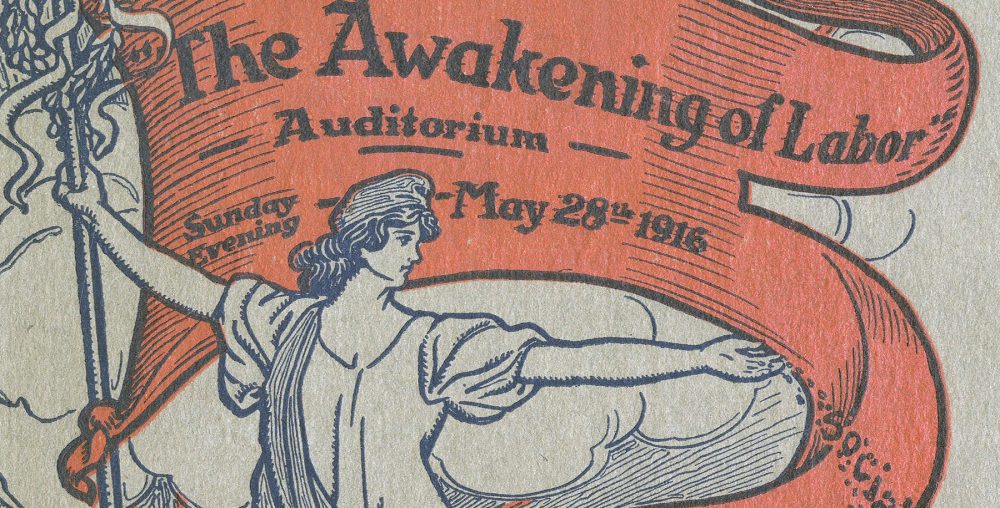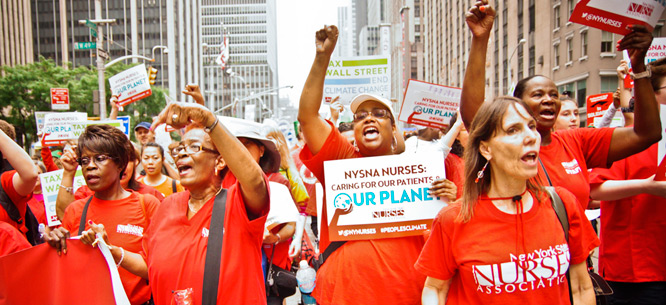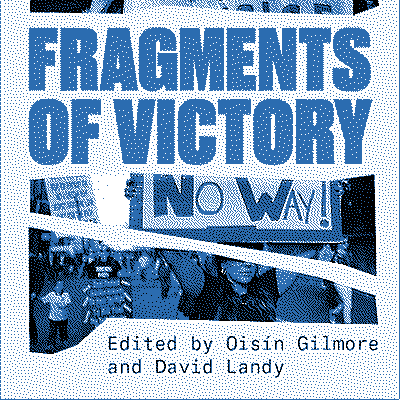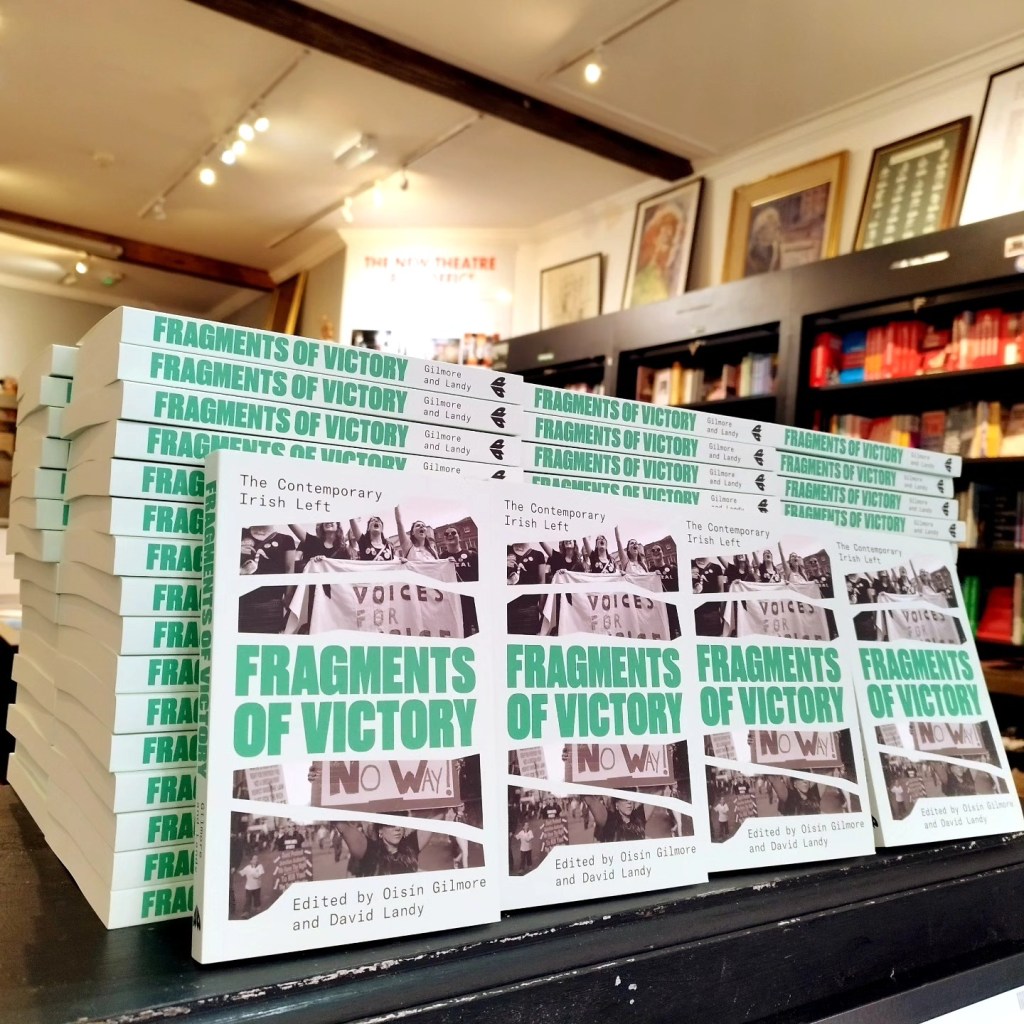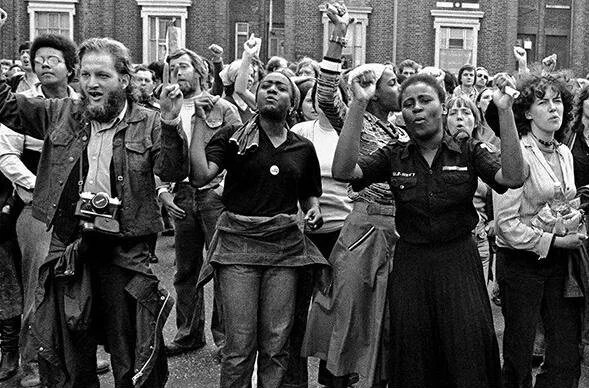
When most people come to oppose capitalism they do so in recognition of the oppression which they personally suffer or see in others, giving rise to more than sorrow or despair but a visceral reaction against it. The various oppressions perpetuated under capitalism are identified and given names, such as women’s oppression and sexism, racial oppression and racism, the oppression of gay people and homophobia, while the poor are those who suffer from poverty and inequality.
When Marx started to develop his understanding of society and its oppression, and how it had been understood by philosophers before him, he asked the question–in critiquing the German philosopher Hegel’s Philosophy of Right–what was ‘the possibility of a German emancipation?’
He answered: ‘In the formulation of a class with radical chains, a class in civil society which is not a class of civil society, an estate which is the dissolution of all estates, a sphere which has a universal character by its universal suffering and claims no particular right because no particular wrong, but wrong generally, is perpetuated against it . . . a sphere, finally, which cannot emancipate itself without emancipating itself from all other spheres of society and thereby emancipating all other spheres of society, which, in a word, is the complete loss of man and hence can win itself only through the complete re-winning of man. This dissolution of society as a particular estate is the proletariat.’
While starting from the nature of the working class’s suffering and oppression he quickly argued that this class was the means by which all social suffering and oppression could be dissolved. The ‘radical chains’ oppressing the working class gave rise to interests that encompassed the abolition of all social oppression ‘through a revolution, in which, on the one hand, the power of the earlier mode of production and intercourse and social organisation is overthrown, and, on the other hand, there develops the universal character and the energy of the proletariat, without which the revolution cannot be accomplished; and in which, further, the proletariat rids itself of everything that still clings to it from its previous position in society.” (Marx and Engels The German Ideology MECW Vol 5 p 88)
The universal character of the working class is central to Marxism but, as we noted at the beginning, it is often through recognition of different oppressions that opposition to capitalism arises, with the various forms treated as separate and subject to different causes and prominence. This arises partly from starting from the particular suffering incurred and the salience at any particular time. As has been noted before, the oppression of Jewish women in Germany from 1933 to the Holocaust was determined by their being Jews, not women, while the oppression of Palestinians by the state of Israel, claiming to be the state of all Jews, is the result of national oppression.
However, accounts based on theories of ethnic, religious, women’s, or national oppression cannot explain why all of them have occurred and still exist, how they can be ended, and what the alternative was in the 30’s and is now. The answer to these questions rests on a cogent class analysis and alternative to capitalism, including in its imperialist form, and the replacement by a society ruled by the working class.
In the two examples referenced, it is clear that the working class and socialism is an alternative to German imperialism and its Nazi ideology, and to the settler colonial Israeli state, its US imperialist sponsor, and the ideology of Zionism that justifies their actions. This obviously does not mean that a working class–socialist answer is universally accepted but it can readily be acknowledged even by those who do not accept its arguments that socialism provides a relevant analysis and offers an alternative.
This is not the case with many opponents of other forms of oppression, for whom the working class and its interests, expressed in a socialist programme, is undesirable, irrelevant or not a primary concern. There is no claim on their part to be universal in the sense put forward by Marx.
If they do not identify capitalism as the problem, they often damn capitalism in such a way that they argue that the bad bits that engender women’s oppression or racial oppression etc. can be removed, indulging an understanding of capitalism that does not permit its abolition but envisages it continuing, with different nomenclature covering up its continued existence. What is proposed is therefore just a reform of capitalism but with some changed secondary characteristics that allow it be called non-patriarchal, non-racist, anti-colonial, social-democratic, mixed economy, or simply ‘democratic’ but with no fundamental change to the economic and social system, and therefore no fundamental political change either.
Of course, there are always those for whom a more equal and just capitalism is the objective, in which case, for them, the exploitation and oppression of the working class either does not exist, can be sufficiently ameliorated, or is unimportant; a capitalism guaranteeing gender, racial and other social equality is enough. Class oppression would then have no biased outcomes based or sex or race etc.
Others who might have sympathy with the emancipation of the working class may consider that socialism does not directly address the particular oppression which is their primary concern, whether it be women’s oppression or racism, and they therefore prioritise these. Often, this entails the view that the exploitation and oppression of the working class involves economic oppression, which might sit alongside others, but which has no claim to priority, never mind any pretence to universality.
For Marxists, however, none of this subverts the validity of the proletariat as the universal class whose emancipation involves not only its own emancipation but that of other oppressed groups, including all those within its own ranks. This involves assertion of the importance of socialist revolution to working class emancipation, and that its scope cannot be encompassed in some notion of purely economic emancipation but involves the complete reordering of society and all its social relationships, which no other perspective of liberation can promise.
Marxists claim this because, among other reasons, of their understanding of what capitalism entails, which other ‘anti-capitalists’ do not. This is why Marx recognised the revolutionary character of the capitalist mode of production and why simple anti-capitalism is not at all an adequate designation of what an alternative is. He would certainly not have endorsed the slogan “another world is possible” as doing not much more than begging more questions than it answers. As the text of The Communist Manifesto makes clear, not even all socialisms are adequate, and some were positively reactionary, although that too, like the universal character of the working class, is no longer in fashion. Some values, such as pluralism, have been made absolute.
It means that the revolutionising of social relations by working class revolution involves not just economic liberation of the working class but the abolition of all classes including the working class itself. The complete reordering of the economic and social basis of society involves changes to all aspects of it:
“In the social production of their existence, men inevitably enter into definite relations, which are independent of their will, namely relations of production appropriate to a given stage in the development of their material forces of production. The totality of these relations of production constitutes the economic structure of society, the real foundation, on which arises a legal and political superstructure and to which correspond definite forms of social consciousness. The mode of production of material life conditions the general process of social, political and intellectual life. It is not the consciousness of men that determines their existence, but their social existence that determines their consciousness.’ (Preface to A Contribution to the Critique of Political Economy. 1859 Marx)
The working class revolution and its emancipation therefore does not just upturn economic and socials relations but also the entire superstructure of society including the state and intellectual life generally – the ideas people have of themselves, of others and of society generally. This leads not just to the abolition of classes and therefore exploitation and oppression but also of the state and its oppression and repression.
The work quoted at the start of this post recalled Marx’s critique of Hegel’s idea of the universal interests of society being represented by the state, while he opposed this and saw the state as a separate and alien force that was a mechanism of class oppression that would no longer be required in a classless society. Its non-repressive functions would no longer be the prerogative of bureaucrats in a body standing apart and on top of society but would be absorbed into it and become the activity of everyone directly involved in those functions.
In this he fought against those socialists who also thought that emancipation would come from outside, including the followers of Proudhon and Robert Owen, who believed that co-operative schemes devised by enlightened reformers would be the workers’ salvation, or those like Blanqui and Weitling for whom freedom would come from the revolutionary conspiracy of an enlightened few.
It is therefore ironic that today so much of what passes for Marxism envisages the state as the embodiment of emancipation with a vanguard that will make the revolution, encapsulated in the slogan that ‘it is the duty of the revolutionary to make the revolution.’ Many of those opposing Marxism and its claim that the working class is the universal class also rely on the capitalist state to enact the end of the particular oppression they oppose.
Back to part 75
Forward to part 77
